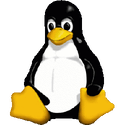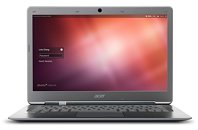Thursday, October 18th 2012

Ubuntu 12.10 Launches Today
Canonical today announces the desktop version of Ubuntu 12.10, the latest release of the popular open source operating system, will be available for public download on the 18th October 2012. As part of Canonical's objective to make all content easier to access, Ubuntu 12.10 introduces innovations that bring together desktop and cloud-based experiences, representing the next stage in the transition to a multi-device, cloud-based world.
When searching for documents in the Ubuntu 12.10 Dash, for example, users can see results from online services like Google Drive, as well as files saved on their hard drives. The Online Accounts feature allows authentication to online sites so that content like photos from Flickr accounts and contacts from Facebook can all be searched instantly by the Dash. The Dash can also search both paid and free content from Amazon and the Ubuntu One Music Store such as music, videos or any product be it digital or physical. The results are displayed in a separate section labelled, 'More Suggestions'.Jane Silber, CEO at Canonical comments: "Ubuntu 12.10 is the operating system for the multi-device era. It makes life significantly easier for users by adapting Ubuntu to the way people really access their content today: online and on the hard drive, at work and at home, on the phone and, of course, on the PC. As consumers and businesses consider their upgrade options, Ubuntu 12.10 offers an easier, faster alternative to competing desktop operating systems."
Elsewhere in the release, new Previews give large, clear previews of content as it appears in the Dash search results, giving users a quick way to get more information to help find what they are looking for. For example, previewing an album that the Dash has found in the Ubuntu One Music Store reveals a track listing and the option to listen - all without leaving the preview. If the content is of interest, users can then choose to click through, download or purchase from online retailers.
The new Web Apps feature offers unprecedented integration between the desktop and online environment, by making frequently-used web applications like Facebook, Twitter, Last.FM, eBay and GMail available through the desktop, without launching a browser separately. Making web applications behave like their desktop counterparts gives the user a faster experience and reduces the proliferation of browser tabs and windows that can quickly make browsing unmanageable.
Ubuntu One, the personal cloud service, is integrated and now available as a native app on Mac OS-X as beta, as well as Windows, iOS and Android. With 5 GB storage free, it's one more way to access documents, music, photos and videos, wherever you are. Ubuntu One's new referrals programme, means that it's possible to get even more storage in return for recommending new users. New APIs mean that application developers can make use of synchronisation features in their own apps.
A new remote log-in option now gives users the alternative of logging into a Citrix, VMWare or Microsoft desktop running on a desktop virtualisation server. Ubuntu 12.10 can thereby be used as a thin client by businesses that want to virtualise their desktop applications and deliver them to users over the network.
Ubuntu 12.10 can be downloaded at www.ubuntu.com/download and is available from the 18th October 2012.
When searching for documents in the Ubuntu 12.10 Dash, for example, users can see results from online services like Google Drive, as well as files saved on their hard drives. The Online Accounts feature allows authentication to online sites so that content like photos from Flickr accounts and contacts from Facebook can all be searched instantly by the Dash. The Dash can also search both paid and free content from Amazon and the Ubuntu One Music Store such as music, videos or any product be it digital or physical. The results are displayed in a separate section labelled, 'More Suggestions'.Jane Silber, CEO at Canonical comments: "Ubuntu 12.10 is the operating system for the multi-device era. It makes life significantly easier for users by adapting Ubuntu to the way people really access their content today: online and on the hard drive, at work and at home, on the phone and, of course, on the PC. As consumers and businesses consider their upgrade options, Ubuntu 12.10 offers an easier, faster alternative to competing desktop operating systems."
Elsewhere in the release, new Previews give large, clear previews of content as it appears in the Dash search results, giving users a quick way to get more information to help find what they are looking for. For example, previewing an album that the Dash has found in the Ubuntu One Music Store reveals a track listing and the option to listen - all without leaving the preview. If the content is of interest, users can then choose to click through, download or purchase from online retailers.
The new Web Apps feature offers unprecedented integration between the desktop and online environment, by making frequently-used web applications like Facebook, Twitter, Last.FM, eBay and GMail available through the desktop, without launching a browser separately. Making web applications behave like their desktop counterparts gives the user a faster experience and reduces the proliferation of browser tabs and windows that can quickly make browsing unmanageable.
Ubuntu One, the personal cloud service, is integrated and now available as a native app on Mac OS-X as beta, as well as Windows, iOS and Android. With 5 GB storage free, it's one more way to access documents, music, photos and videos, wherever you are. Ubuntu One's new referrals programme, means that it's possible to get even more storage in return for recommending new users. New APIs mean that application developers can make use of synchronisation features in their own apps.
A new remote log-in option now gives users the alternative of logging into a Citrix, VMWare or Microsoft desktop running on a desktop virtualisation server. Ubuntu 12.10 can thereby be used as a thin client by businesses that want to virtualise their desktop applications and deliver them to users over the network.
Ubuntu 12.10 can be downloaded at www.ubuntu.com/download and is available from the 18th October 2012.

42 Comments on Ubuntu 12.10 Launches Today
Not web based stuff but actual installed games.
But as I stated, the more people that jump on the bandwagon, the more games will be made to run natively on Linux.
Personally I run linux about 80% of the time, I do all my email, most of my school work ( some of it requires IE so I have to be in windows for that ), web surfing, music listening, downloading, torrenting, and media watching in Linux, and even some of my gaming. However for most games and to do quicken I have to go into Windows.
But please give Linux a shot, it can only get better, it has a large and thriving and helpful community, and the larger it is the more reasons for devs to make games for it, also ubuntu may not be for you, so also try Mint, but I do recommend you stick with a Debian based distro, but Fedora is good also. There are many many many different distros, odds are there is one that is right for you.
And to give you an idea here is a small distro timeline.:toast:
Here is one focused only on Debian distros.
hmm Dino2D anyone lol.
Well what distro would you honestly recommend for Gaming?
Ive tried Suse in the past, Gentoo, Even Mandrake. All interesting but never took hard time to work with them. It sux that Windows is Defacto for PC just like how CL was for Audio cards. Dont get me wrong I like Windows 98 SE, XP, 7. Just it seems MS keeps on having too many misses with the OS now, honestly Im sure MS didnt have to release a new version more like fix the kernel and other issues with a 7 Upgrade- aka a 7.5 or something of that matter. I Personally dont have a problem purchasing an OS just as long as it works. Ive used mac in the past and i prefer windows over it honestly
Gentoo, is not very user friendly IMO, and the community is small but dedicated.
I personally am a big fan of Debian and it's derivative distros, mainly because they have the largest community's and also back in the day they had the best packet delivery and management system, which now days is much less of an issue. So I would tend to recommend Mint, Ubuntu (if you can put up with unity ( YUCK:wtf:)), or just straight up Debian, as aagin they have the largest community's so you are far more likely to find a solution should you encounter a problem, and as the most widely used distros your more likely to find what you want for your distro, without having to go and force it to work and compile things ect.
So any of those 3 would be good I personally use Mint at the moment, though I also have an up to date Ubuntu partition, so i recommend you start with either of those, and see if they fit your needs, both support a wide range of desktops from Xfce to kde, as a Gnome fan I made the switch to Mint about a year ago when Ubuntu made it clear they were going to push Unity over Gnome.
So to summarize all that at the moment there is no true "best for gaming" distro, and as atm it's all about compatibility, the most popular and widely used distros like Mint and Ubuntu, seem to be the first to get games, and such, so I would recommend those two for those wishing to get their feet wet in Linux and still wanting to have a chance at gaming.
I'm dl'ing at 75kB/s :banghead:
MATE or Cinnamon? By looks i think i might like Cinnamon, but not for sure on the differences.